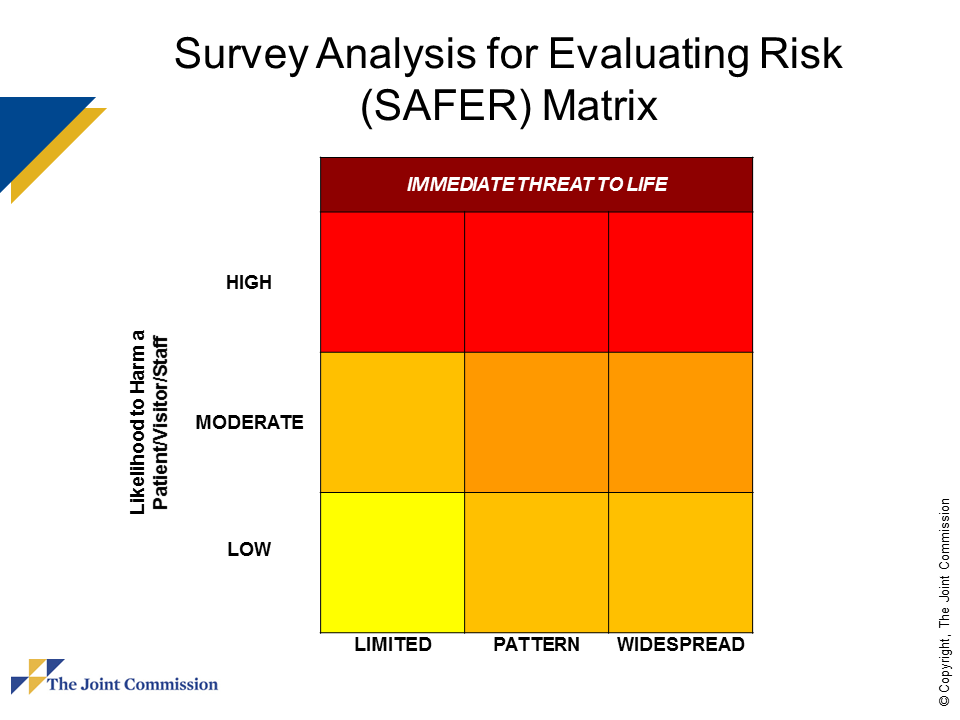If you are a psychiatric hospital that uses TJC accreditation for deemed status, you probably received an email communication recently from TJC entitled “Important Update on The Joint Commission Accreditation Process for Psychiatric Hospitals.” This notification discusses some significant changes to survey reports, scoring, and the post-survey process for psychiatric hospitals. These changes were discussed at the Consultants Forum we recently attended at TJC and are now being communicated officially to the field. The following is a summary of the key changes that go into effect June 6, 2016 (only for psychiatric hospitals that use TJC accreditation for deemed status.)
SAFER Matrix
Survey reports will include a new matrix summarizing the survey findings based on the estimated level of risk to patients, staff, and visitors. The matrix is titled SAFER (Survey Analysis for Evaluating Risk). The SAFER matrix will be displayed as a 9 box grid summarizing the survey findings based on the following factors:
- Likelihood of harm (low, moderate, high)
- Scope of non-compliance (limited, pattern, widespread)
The purpose of using this new matrix is to provide hospitals with a high level analysis of the degree of risk represented by the various survey findings. It’s designed to aid leadership in identifying and prioritizing those findings that present the greatest risk of harm.

Categorization of Findings
The categorization of survey findings will be less complicated. Findings will no longer be identified as Direct Impact or Indirect Impact. Also, elements of performance (EPs) will no longer be categorized as “A” or “C.” In addition, there will no longer be a category of “Opportunities for Improvement” which currently do not require a response to TJC. All findings will now be included in the survey report and the matrix and will require a response.
Post Survey Process
TJC wants to simplify the post survey follow-up process. So, Evidence of Standards Compliance (ESC) for survey findings will no longer be due at 45 days for Direct Impact findings and 60 days for Indirect Impact findings. Instead, all ESCs will be due 60 days after the official survey report is posted. In addition, Measure of Success (MOS) data will no longer be required as part of the ESC. Instead, those findings rated at the higher risk level on the matrix will require a plan describing how the hospital will achieve and sustain compliance with the applicable standard.
As discussed at the TJC Consultants Forum, these changes are designed to make the on-site survey process and post-survey follow-up process more meaningful and efficient for psychiatric hospitals. If you have any questions about these upcoming changes and how they affect your organization, please feel free to contact us to discuss those. In addition, as these changes play out in your upcoming surveys, please provide us feedback on your experience. We will share that in upcoming newsletters and will also have an opportunity to share that feedback with TJC through the Consultants Forum. They are very interested in hearing how these changes impact the TJC survey experience for psychiatric hospitals!

